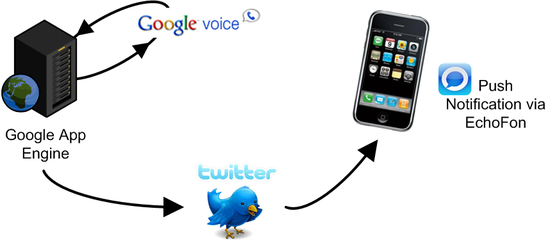Science Editor: Hey boss, we just got an incredible submission! It's titled "Merry-Go-Round Warp Drive" and it explains how to exceed the speed of light! See, all you gotta do is get the merry-go-round going up to like 99.9% of the speed of light and then make it really big. The outside part will then be going way faster than the speed of light.
Science Senior Editor: Who is this guy? What lab's he at?
Science Editor: That's the thing - this is a 12-year-old genius savant. He turned it in for his sixth-grade science homework.
Science Senior Editor: Buy the rights. In fact, buy the rights to the whole damn class' homework assignments - we'll bundle 'em all up into a special issue, maybe sell it to Nature!
Better yet, let's bundle 'em, then auction them off paragraph by paragraph!
Grad Student: But the articles won't make any sense then.
Dr. Bigwig, Ph.D.: Exactly! They'll be difficult to understand, causing everyone to believe they must be incredibly ground-breaking, driving up prices (and our reputations).
...a few months later in a lab near you
Grad Student: I've got this great idea for how to cure cancer. If we can get people moving up to the speed of light then they'll become super-conductors and we can zap them and all the free radicals in their bodies without hurting them. It could stave off or even cure existing cancers!
Dr. Bigwig, Ph.D.: I'm a bit skeptical - how would you get them up to the speed of light, isn't that impossible?
Grad Student: No! There's this new result out of McKinley Middle School that shows how to exceed the speed of light - we'd just have to spin them really, really fast and then zap them.
Dr. Bigwig, Ph.D.: You know, I've heard that there's a new result showing how if you spin something fast enough it can be made to move faster than the speed of light. We could do that...and then zap them.
Grad Student: Right that's what I ...
Dr. Bigwig, Ph.D.: Ok, then we're all set! What a great idea I had! I'm going to be famous!
Grad Student: But can we get IRB approve it?
Dr. Bigwig, Ph.D.: Ha! IRB's are a worry of the past - the past few administrations have realized that the IRB was stifling creativity - they still exist, but their responsibilities have been reduced to getting coffee for one another and hassling HCI students wanting to do surveys. They've realized that we wouldn't dare do something dangerous - it would hurt our reputations, so subject protection is self-moderating.
Grad Student: Great! So I'll schedule the first couple of participants and see how they react.
Dr. Bigwig, Ph.D.: That's so slow, I need pay-off now. Bring in 100 people, do it all at once, you'll save time and money.
Grad Student: You're so smart Dr. Bigwig, Ph.D. I'll schedule them all as soon as I can attach this platform to this blender motor and rig up this wire for them to hold to an electrical outlet.
...a few days later at a hospital near you
Resident: Doctor! We have just received 100 patients all with electric shocks, burns, and dizziness. I've quickly surveyed them and it appears the patient John Q. is in the worst shape - we should get him to surgery stat!
Doctor: Damn residents! Get this jerk out of here, bring in C. E. Oppenheimer, and tell that jackass to keep up with the latest medical research before gambling with people's lives.
Now C., I'm glad I was able to intervene and see you first - your chart indicates your high levels of cash - is there anything I can get you? Coffee, juice?
...at a conference on a small island paradise off Morocco
Dr. Bigwig, Ph.D.: "...and so after 2 years, of the 100 subjects in the experimental condition, all of whom were previously diagnosed with stage 4 cancer, NONE had died from cancer."
... later that evening
Dr. Bigwig, Ph.D. (on phone with dean): "The university has onlly awarded me 20 x current tuition for my annual bonus - this is simply unacceptable. My contract clearly states that I am to be awarded 30 x annual undergrad tuition. You know the Ivies have been calling me - if you want to remain keep the top talent, you need to reward me for my stellar performance."
Dean: "But Dr. Bigwig, you killed 100 people...I know you're worth 30 x annual undergraduate tuition, but you know the parents and alumni - they just don't understand. How about I give you 10 full undergraduate tuition tickets that you could sell to future undergraduates in a year after these crazy politics have died down?"
Stay tuned for next week's article --- what if banking were like science?

![Reblog this post [with Zemanta]](http://img.zemanta.com/reblog_e.png?x-id=1433b5b9-3e43-4d36-8a5a-dae185f082b1)

![Reblog this post [with Zemanta]](http://img.zemanta.com/reblog_e.png?x-id=725890b2-6f14-4071-a8cc-027fd980b399)

![Reblog this post [with Zemanta]](http://img.zemanta.com/reblog_e.png?x-id=49e6e071-34b5-45c6-9729-cba1dae19191)
